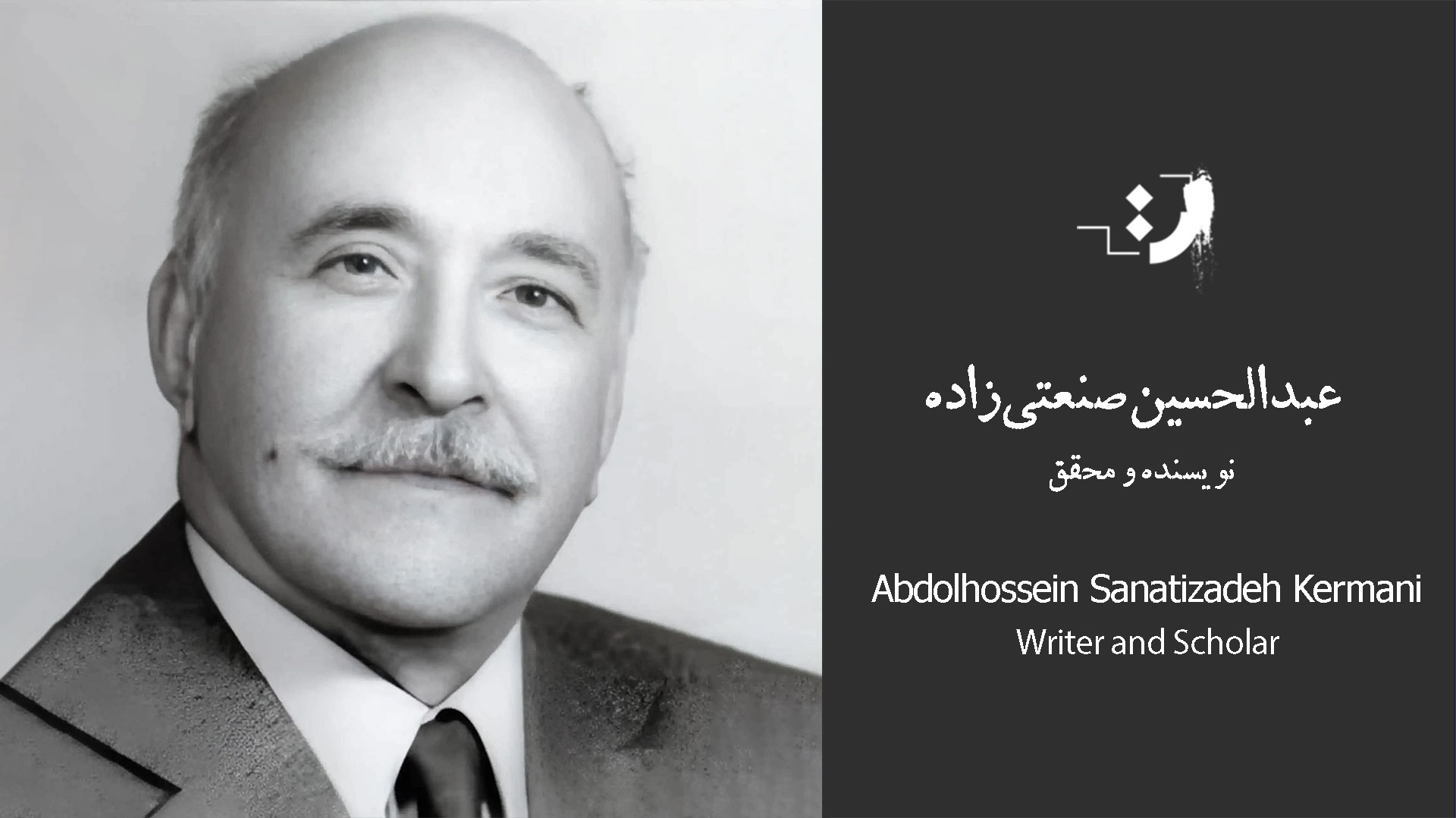Abdolhossein Sanatizadeh Kermani

Biography
Abdolhossein Sanatizadeh Kermani (born 1895/1896 in Kerman – died 1973 in Paris) was one of the earliest Iranian novelists and is widely recognized as the father of the historical novel in Iran. His most important work, The Assembly of Madmen (Majma‘-e Divānegān), is considered the first utopian novel in Persian literature.
Sanatizadeh was born in the city of Kerman in 1895 or 1896 (1274 in the Iranian calendar). He is known for his contributions to modern Persian fiction, especially in the genre of historical and speculative literature. A passionate writer from an early age, he began experimenting with storytelling in his youth and published his first historical novel, The Plotters or The Avengers of Mazdak, around 1911.
He was married to Ghamartaj Dowlatabadi and Khorshid Hemmati, and was the father of Homayoun, Fereydoun, Mahdokht, Fereshteh, Malakeh, Mohsen, and Shirin.
Personal Recollections
In his autobiographical book The Days That Passed (Roozegari ke Gozasht), Sanatizadeh vividly recounts his childhood memories. He describes being tightly swaddled as an infant and photographed by an Armenian friend of his father’s named Davoud. He also reflects on the challenges of learning to read the Qur’an in a traditional neighborhood maktabkhaneh (elementary school), where he struggled to understand the Arabic alphabet and endured frequent beatings, often crying over the pages of his elementary Qur’anic reader, Joz’-e Amma.
Major Works
Sanatizadeh wrote numerous novels, blending history with imaginative fiction. Many of his stories reflect his interest in ancient Persia, mysticism, reformist ideals, and utopian visions. His key works include:
The Plotters or The Avengers of Mazdak (ca. 1911)
The Brave (Salahshour, 1924)
The Assembly of Madmen (Majma‘-e Divānegān, 1924) – a utopian novel
Mani the Painter (1926)
Rostam in the 22nd Century (1934) – science fiction/speculative future novel
The Eternal World (‘Ālam-e Abadi, 1938)
The Black-Clad Ones or The Story of Abu Muslim (1944)
The Angel of Peace or Fattaneh of Isfahan (1952)
Nader, the Conqueror of Delhi (1957)
The Days That Passed (Roozegari ke Gozasht, 1967) – autobiography
How to Become Wealthy (unpublished/undated)
Sanatizadeh’s works not only marked the emergence of the historical novel in Persian, but also explored themes of social reform, nationalism, mysticism, and futuristic imagination.
Legacy
Russian scholar Mikhail Mikhalski referred to Sanatizadeh as the father of Iran’s historical novel. His utopian visions and historical fiction laid the foundation for future generations of Iranian writers to blend tradition with modern narrative forms.
Death
Abdolhossein Sanatizadeh passed away in Paris in 1973 (1352 SH), closing a remarkable chapter in the early history of modern Iranian literature.
- Birthday: 1895
- Death: 1973
- Birthplace: Kerman, Kerman, Iran
Writer and Scholar
